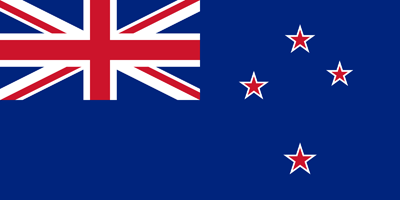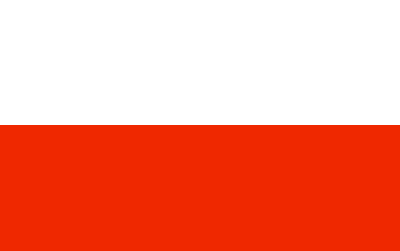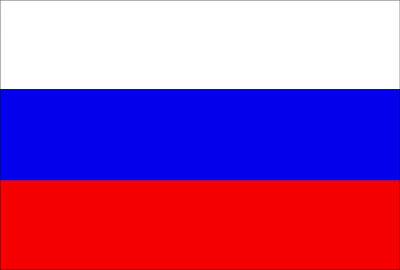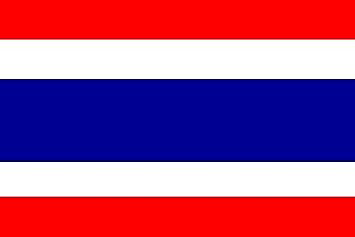**NEW** ISDA Webinar: “CAD CDOR Cessation” (click for presentation and recording)
This page will be updated on a regular basis as relevant information becomes available globally and will serve as the central repository for information from ISDA relating to financial benchmark reform and the transition from LIBOR. If you have any questions or would like additional information in relation to these matters, please email: benchmarkreform@isda.org.
This page is separated in eleven sections:
- Background
• IBORs and Risk-Free Rates
• ISDA’s Work - Regulatory and Risk-free Rate Working Group Market Guidance
- ISDA-Clarus RFR Adoption Indicator
- Legislation and Potential Legislation
- Fallbacks for IBOR Derivatives
• Background
• ISDA Statements
• External Statements
• Competition Law Materials
• Educational Materials
• Documentation
• Bloomberg: Fallback Spread Vendor - ISDA-Brattle Microsite: Understanding IBOR Benchmark Fallbacks
- Fallbacks for Swap Rates
- Other Benchmark Reform Initiatives
• Risk-Free Rate Compounding
• Swaptions
• Collateral
• EONIA & €STR
• CCP PAI/Discounting Changes
• EU Benchmarks Regulation and Review
• Disclosures
• CCP Active Transition from LIBOR
• Credit Sensitive Alternatives to USD LIBOR
• Term RFRs - Relevant Research/Reading Material
- Press Releases/Latest News/Speeches/Presentations
- Market Education Calls/Webinars/Conferences
Key interbank offered rates (IBORs), types of interest rate benchmarks, are undergoing a period of change as regulators and industry groups have recommended that firms consider adoption of alternative, overnight risk-free rates (RFRs).
In the case of LIBOR, it has long been clear that market participants cannot rely on this rate after the end of 2021, but on March 5, 2021, following a consultation by ICE Benchmark Administration (IBA), the administrator of LIBOR, the UK Financial Conduct Authority (FCA) gave firms a clear timetable for when they need to shift to alternative reference rates.
Specifically, the FCA confirmed that all seven tenors for both euro and Swiss franc LIBOR, overnight, one-week, two-month and 12-month sterling LIBOR, spot next, one-week, two-month and 12-month yen LIBOR and one-week and two-month US dollar LIBOR will permanently cease immediately after December 31, 2021. Publication of the overnight and 12-month US dollar LIBOR settings will cease for good immediately after June 30, 2023, while the 1-month, 3-month and 6-month settings will become non-representative from that date.
Since the FCA’s announcement, the derivatives industry has had clarity on exactly when new fallbacks for outstanding LIBOR exposures will kick in for all 35 currency and tenor pairs pursuant to the IBOR Fallbacks Supplement and the IBOR Fallbacks Protocol (described below), as well as the spread adjustments that will be added to the adjusted RFRs in the fallback methodology.
Furthermore, the FCA used new powers introduced into the UK Benchmarks Regulation by the Financial Services Act to require IBA to continue publishing one-month, three-month and six-month sterling LIBOR and one-month, three-month and six-month yen LIBOR on a synthetic basis for an additional year after end-2021 (after which synthetic yen LIBOR will stop being published). On September 29, 2022, the FCA announced that publication of 1- and 6-month synthetic sterling LIBOR will be required until end-March 2023, after which these settings will permanently cease. Importantly, the FCA confirmed the sterling and yen LIBOR tenors would no longer be representative of their underlying market after December 31, 2021. It has published a draft notice which confirms that, while use of synthetic LIBOR by UK regulated firms will be prohibited for new transactions under the UK Benchmark Regulation from January 1, 2022, use of synthetic LIBOR by regulated firms will be permitted for all legacy products other than cleared derivatives until at least end of 2022.
The FCA has also stated that it will consider the case for requiring IBA to continue publishing one-month, three-month and six-month US dollar LIBOR on a non-representative and synthetic basis for a further period after the end of June 2023. Importantly, though, the FCA has prohibited the use by UK supervised entities of all 5 continuing USD LIBOR tenors in new transactions with effect from January 1, 2022, except for specific activities which are designed to facilitate risk management or reduction of exposures incurred prior to January 1, 2022. This approach follows similar supervisory guidance issued by US regulatory authorities (see “United States” under “Regulatory and Risk-free Rate Working Group Market Guidance”).
UK FCA is the supervisor for the IBA, which is the administrator of LIBOR in all five currencies. It maintains information about the transition away from LIBOR on its website.
This section covers LIBOR in the five currencies in which it is currently published (US dollar, sterling, Swiss franc, Japanese yen and euro), EURIBOR, TIBOR, Euroyen TIBOR, BBSW, HIBOR, CDOR, BKBM and NIBOR (each an IBOR) and their current administrators, as well as information about the alternative RFR for each IBOR, the administrators for the alternative RFRs, and the designated public-/private-sector working group for each relevant jurisdiction. It also contains similar information about SOR, THBFIX, PHIREF and MIFOR, which are synthetic benchmarks that use USD LIBOR as an input.
a
*Note that Modified MIFOR is the identified alternative for MIFOR, SORA is the identified alternative for SOR and THOR is the identified alternative for THBFIX. However, these alternatives are not the fallbacks. Instead, FBIL will calculate and publish an Adjusted MIFOR that will be implemented as the contractual fallback for MIFOR, ABS Co will calculate and publish a Fallback Rate (SOR) that will be implemented as the contractual fallback for SOR and Bank of Thailand will calculate and publish a Fallback Rate (THBFIX) that will be implemented as the contractual fallback for THBFIX. Additionally, BAP will calculate and publish a fallback rate that will be implemented as the contractual fallback for PHIREF.
ISDA identifies various key ISDA workstreams relating to the reform of IBORs and other interest rate benchmarks and the development of alternative RFRs in this table. ISDA expects to update this document from time to time.
ISDA conducts its work through a variety of different working groups (WGs): ISDA Americas and Europe Benchmark WG, ISDA APAC Benchmark WG, ISDA JPY Benchmark WG, ISDA EU Benchmark Regulation Advocacy Group and the ISDA IBOR Fallback Implementation Subgroup.
To join one of the above WGs:
- Create an account on the ISDA website;
- After you create an account, click on the Committees tab and then view My ISDA Committee Dashboard. You can request to join and leave working groups and distribution lists
- FSB
- FSB Statement to encourage final preparations for the USD LIBOR transition (April 2023)
- FSB Statement Welcoming Smooth Transition from LIBOR (April 2022)
- FSB Statement to Support Preparations for LIBOR Cessation (November 2021)
- FSB Global Transition Roadmap for LIBOR (Updated June 2, 2021)
- FSB Report: Interest rate benchmark reform: Overnight risk-free rates and term rates (June 2021)
- FSB OSSG Supports Use of the ISDA Spread Adjustments in Cash Products (June 2021)
- FSB Statement on Smooth and Timely Transition away from LIBOR (June 2021)
- IOSCO
- Canada
- OSFI’s expectations for CDOR Transition (May 2022)
- CARR – CDOR transition roadmap and milestones (May 2022)
- Hong Kong
- Japan
- Singapore
- Switzerland
- United Kingdom
- United States
- Joint Supervision and Regulation Statement on Completing the LIBOR Transition (April 2023)
- Statement from CFTC Staff on Transition Away from LIBOR
- CFTC MRAC Interest Rate Benchmark Reform Subcommittee SOFR First
- ARRC Best Practices (includes August 2020 update)
- ARRC Guide on the Endgame for USD LIBOR (includes April 2021 update)
- ARRC Progress Report: The Transition from US Dollar (USD) Libor
- US Agencies Statement on LIBOR Transition (November 2020)
- US Agencies Joint Statement on Managing the LIBOR Transition (October 2021)
- US FRB Answers to Frequently Asked Questions on the Transition Away from LIBOR (July 2021, updated November 2021)
- US Federal Reserve Examiner Guidance for Assessing LIBOR Transition Efforts at Firms with Less Than $100 Billion in Total Consolidated Assets
- US Federal Reserve Examiner Guidance for Assessing LIBOR Transition Efforts at Supervised Firms with $100 Billion or More in Total Consolidated Assets
The ISDA-Clarus RFR Adoption Indicator tracks how much global trading activity (as measured by DV01) is conducted in cleared over-the-counter (OTC) and exchange-traded interest rate derivatives (IRD) that reference the identified risk-free rates (RFRs) in six major currencies.
- Whitepaper on the methodology
- Interactive charts
- Monthly reports
- November 2023
- October 2023
- September 2023
- August 2023
- July 2023
- June 2023
- May 2023
- April 2023
- March 2023
- February 2023
- January 2023
- December 2022
- November 2022
- October 2022
- September 2022
- August 2022
- July 2022
- June 2022
- May 2022
- April 2022
- March 2022
- February 2022
- January 2022
- December 2021
- November 2021
- October 2021
- September 2021
- August 2021
- July 2021
- June 2021
- May 2021
- April 2021
- March 2021
- February 2021
- January 2021
- December 2020
- November 2020
- October 2020
- September 2020
- August 2020
- July 2020
- June 2020
- European Union
- United Kingdom
- FCA Feedback Statement related to November 2022 consultation on ‘synthetic’ US dollar LIBOR (June 2023)
- FCA issues final messages before the important end-June 2023 deadline (June 2023)
- FCA consultation on ‘synthetic’ US dollar LIBOR and feedback to CP 22/11 (November 2022)
- FCA announces decision on cessation of 1- and 6-month synthetic sterling LIBOR at end-March 2023 (September 2022)
- FCA consultation on winding down ‘synthetic’ sterling LIBOR and US dollar LIBOR (August 2022)
- UK Financial Services Bill
- FCA notice of prohibition on new use of USD LIBOR from 2022 (November 2021)
- A Notice confirming the prohibition on new use, under Article 21A of the Benchmarks Regulation, of the five continuing US dollar LIBOR settings from the start of 2022, and the exceptions under which new use is allowed.
- FCA draft notice of permitted legacy use of synthetic rates for Sterling and Yen LIBOR from 2022 (November 2021)
- A draft Notice confirming which legacy contracts, under Article 23C of the Benchmarks Regulation, will be permitted to use the six ‘synthetic’ yen and sterling LIBOR settings from the start of 2022. All legacy contracts except cleared derivatives will be able to use these synthetic LIBOR settings.
- FCA feedback statement on use of synthetic rates for Sterling and Yen LIBOR (November 2021)
- A Feedback Statement following the FCA’s consultation and subsequent decision on implementing synthetic LIBOR for the 1-, 3- and 6-month sterling and Japanese yen LIBOR settings. A large majority of respondents supported its proposal on the methodology for synthetic LIBOR, including using the same fixed credit spread as that used in ISDA’s IBOR Fallbacks Protocol (the ISDA spread).
- FCA consultation on use of synthetic rates for Sterling and Yen LIBOR and new use of LIBOR (September 2021)
- FCA statement of policy on the use of synthetic rates for Sterling and Yen LIBOR (September 2021)
- FCA statement of policy on restrictions on new use of LIBOR (September 2021)
- FCA draft notice of requirements for methodology of synthetic rates for Sterling and Yen LIBOR (September 2021)
- FCA notice of first decision to compel publication of synthetic rates for Sterling and Yen LIBOR (September 2021)
- FCA consultation on synthetic rates for Sterling and Yen LIBOR (June 2021)
- FCA consultation on power over use of critical benchmarks (May 2021)
- HMT Consultation on Supporting the Wind-down of Critical Benchmarks (safe harbour) (February 2021)
- FCA response to IBA’s proposed consultation on intention to cease USD LIBOR (November 2020)
- FCA consultations on new benchmarks powers (November 2020)
- HMT and FCA Statements (June 2020)
- United States
To address the risk that one or more IBORs are discontinued while market participants continue to have exposure to that rate, counterparties are encouraged to agree to contractual fallback provisions that would provide for adjusted versions of the RFRs as replacement rates.
ISDA has amended certain ‘floating rate options’ in the 2006 ISDA Definitions to include fallbacks that would apply upon the permanent discontinuation of certain key IBORs and upon a ‘non-representative’ determination for LIBOR. ISDA also amended certain floating rate options that use USD LIBOR as an input to include fallbacks that would apply if USD LIBOR is permanently discontinued or upon a ‘non-representative’ determination for USD LIBOR.
On October 23, 2020, ISDA launched the IBOR Fallbacks Supplement (Supplement 70 to the 2006 ISDA Definitions) and IBOR Fallbacks Protocol. The Supplement amends ISDA’s standard definitions for interest rate derivatives to incorporate robust fallbacks for derivatives linked to certain IBORs. These changes came into effect on January 25, 2021. Transactions incorporating the 2006 ISDA Definitions that are entered into on or after January 25, 2021 include the amended floating rate option (i.e., the floating rate option with the fallback). Transactions entered into prior to January 25, 2021 (so called “legacy derivative contracts”) continue to be based on the 2006 ISDA Definitions as they existed before they were amended pursuant to the Supplement, and therefore will not automatically include the amended floating rate option with the fallback.
The IBOR Fallbacks Protocol facilitates multilateral amendments to include the amended floating rate options, and therefore the fallbacks, in legacy derivative contracts. By adhering to the protocol, market participants agree that their legacy derivative contracts with other adherents include the amended floating rate option for the relevant IBOR and therefore include the fallback. As always, the protocol is completely voluntary and amends contracts only between two adhering parties (i.e., it does not amend contracts between an adhering party and a non-adhering party or between two non-adhering parties). The fallbacks included in legacy derivative contracts by adherence to the protocol are exactly the same as the fallbacks included in new transactions that incorporate the 2006 ISDA Definitions and that are entered into on or after January 25, 2021.
Information on consultations on potential cessation of IBORs can be found here.
On June 11, 2021, ISDA published the 2021 ISDA Interest Rate Derivatives Definitions (“2021 Definitions”). The 2021 Definitions succeeded the 2006 ISDA Definitions as the market standard definitional booklet for the interest rate derivatives markets effective October 4, 2021. The provisions of the IBOR Fallback Supplement have been substantively ported into the 2021 Definitions alongside additional fallback related provisions. Further information on the 2021 Definitions can be found here.
On December 16, 2021, ISDA published Supplement 90 to the 2006 ISDA Definitions and a new version of the 2021 ISDA Interest Rate Derivative Definitions to enable parties to include fallbacks into new derivatives transactions referenced to certain interbank offered rates (IBORs) not covered by ISDA’s IBOR Fallbacks Supplement (Supplement 70 to the 2006 ISDA Definitions) and IBOR Fallbacks Protocol including BKBM Bid, BKBM FRA, NIBOR, MIFOR, PHIREF, KLIBOR, STIBOR and SIOR. The ISDA 2021 Fallbacks Protocol and the December 2021 Benchmark Module of the ISDA 2021 Fallbacks Protocol were also published to allow firms to incorporate the fallbacks into all legacy derivatives contracts incorporating the 2006 ISDA Definitions or the 2021 ISDA Interest Rate Derivative Definitions with counterparties that also adhere to the protocol. The December 2021 Benchmark Module of the ISDA 2021 Fallbacks Protocol is effective from December 16, 2021.
On November 18, 2022, ISDA published a new version of the 2021 ISDA Interest Rate Derivative Definitions, which, among other things, enables parties to include fallbacks into new derivatives transactions for CIBOR, TELBOR and MosPrime. The November 2022 Benchmark Module of the ISDA 2021 Fallbacks Protocol was published on November 21, 2022 to allow firms to incorporate the fallbacks into all legacy derivatives contracts incorporating the 2006 ISDA Definitions or the 2021 ISDA Interest Rate Derivative Definitions with counterparties that also adhere to the protocol. The November 2022 Benchmark Module of the ISDA 2021 Fallbacks Protocol is effective from November 21, 2022.
- ISDA Statement on JBATA’s Euroyen TIBOR Announcement (March 2024)
- ISDA Statement on JBATA public consultation on permanent cessation of Euroyen TIBOR (August 2023)
- ISDA Statement on BAT TRLIBOR Announcement (June 2022)
- ISDA Remaining Tenor Cessation Guidance – CDOR (May 2022)
- ISDA Statement on RBSL CDOR Announcement (May 2022)
- ISDA Statement on CARR and RBSL Announcements on CDOR (December 2021)
- ISDA Statement on JBATA Announcement on Yen TIBOR and Euroyen TIBOR (March 2021)
- ISDA Guidance – LIBOR (March 2021)
- ISDA Statement on IBA, UK FCA and Federal Reserve Board Announcements on US Dollar LIBOR Consultation (November 2020)
- ISDA Tenor Cessation Guidance – 6m and 12m CDOR (November 2020)
- ISDA Statement on IBA and FCA Announcements on LIBOR Consultations (November 2020)
- ISDA Board Statement on the launch of the IBOR Fallbacks Supplement and Protocol (October 2020)
- Letter to FSB OSSG – Timing Update for IBOR Fallbacks Protocol (September 2020)
- ISDA Board Statement in Support of IBOR Fallbacks (July 2020)
- Letter to RFR WGs – ISDA IBOR Fallback Protocol (July 2020)
Australia
Europe
- EUR RFR WG, ECB, ESMA, EC and FSMA statement welcoming launch of IBOR Fallbacks Supplement and Protocol (November 2020)
FSB
United Kingdom
- GBP RFR WG, FCA and Bank of England statement welcoming launch of IBOR Fallbacks Supplement and Protocol (October 2020)
United States
- Statement of CFTC Chairman Heath P. Tarbert regarding the transition away from IBORs (November 2020)
- ARRC statement supporting IBOR Fallbacks Protocol and encouraging adherence (October 2020)
- Federal Reserve Supervision and Regulation Letter SR20-22 regarding IBOR Fallbacks Supplement and Protocol (October 2020)
- U.S. Department of Justice Business Review Letter (October 2020)
- Letter from DG COMP to ISDA (July 2021)
Guides
- ISDA Fallbacks vs. CCP Conversion – Worked Example (Updated June 2023)
- ISDA IBORs and RFR Fallbacks Table (May 22, 2023)
- Bloomberg published Fallback Rates: Interaction between RFR publications, IBOR Fallback publications and the ISDA Definitions – Guidance Note (March 10, 2023)
- Linear Interpolation – Guidance Note (February 3, 2022)
- Linklaters – Happy New Year! – And happy first London Banking Day after 1 January 2022! (January 4, 2022)
- Swaptions – Outcomes with and without Supplement 70 (Updated November 2021)
- User Guide to IBOR Fallbacks and RFRs (October 2020)
- RFR Conventions and IBOR Fallback Product Table (including guidance on how fallbacks operate for non-linear derivatives) (October 2021)
- FACTSHEET: Understanding IBOR Benchmark Fallbacks
- FACTSHEET: Understanding IBOR Benchmark Fallbacks (Japanese)
- Brochure: Benchmark Reform at a Glance
- Diagrams – Index Cessation Event Fallbacks for IBORs
Videos/Webinars
- ISDA Webinar: “USD LIBOR Final Steps” (click for presentation and recording) (April 13, 2023)
- Video Interview with Katherine Tew Darras, General Counsel at ISDA: Why should I update the fallbacks in my derivatives contracts? (December 8, 2020)
- ISDA Webinar: The Path Forward for LIBOR (webinar recording and full transcript) (December 4, 2020)
- Podcasts on LIBOR Transition (November 3, 2020)
- Video: Introduction to Benchmark Fallbacks (October 23, 2020)
- IBOR Fallbacks Supplement and IBOR Fallbacks Protocol webinar and slides (October 15, 2020)
- Methodology and Bloomberg Publication webinar and slides (October 15, 2020)
- Bilateral Templates, ISDA Create and IHS Markit Outreach360 webinar and slides (October 2020 and updated in December 2020 with ISDA Create demo)
- ISDA Create InfoHub
- Video Interview with ISDA CEO Scott O’Malia: What’s Next for Derivatives Markets? (June 9, 2020)
- Video Interview with Ann Battle, Head of Benchmark Reform at ISDA: Understanding Benchmark Fallbacks (June 3, 2020)
- 2020 IBOR Fallbacks Supplement – Supplement 70 to the 2006 ISDA Definitions
- ISDA 2020 IBOR Fallbacks Protocol
- 2020 IBOR Fallbacks Protocol FAQs
- Other materials relating to the ISDA 2020 IBOR Fallbacks Protocol, including information about how to adhere, can be found here.
- Bilateral documents
- 2021 IBOR Fallbacks Supplement – Supplement 90 to the 2006 ISDA Definitions
- ISDA 2021 Fallbacks Protocol
- ISDA 2021 Fallbacks Protocol – December 2021 Benchmark Module
- ISDA 2021 Fallbacks Protocol FAQs and December 2021 Benchmark Module FAQs
- Other materials relating to the December 2021 Benchmark Module of the ISDA 2021 Fallbacks Protocol, including information about how to adhere, can be found here.
- ISDA 2021 Fallbacks Protocol – November 2022 Benchmark Module
- ISDA 2021 Fallbacks Protocol FAQs and November 2022 Benchmark Module FAQs
- Other materials relating to the November 2022 Benchmark Module of the ISDA 2021 Fallbacks Protocol, including information about how to adhere, can be found here.
- ISDA/IIFM IBOR Fallbacks Definitions Booklet for Islamic Hedging Transactions and Bilateral Amendment Agreement
- IBOR Fallbacks Supplemental Agreement to the 2009 NAFMII Master Agreement (Chinese Only)
- IBOR Fallbacks Booklet for China Interbank Market Financial Derivative Transactions (Chinese Only)
In July 2019, ISDA announced that Bloomberg Index Services Limited (BISL) was selected to calculate and publish adjustments related to fallbacks that ISDA intends to implement for certain interest rate benchmarks in its 2006 ISDA Definitions. These adjustments related to fallbacks and the ‘all in’ fallback rates calculated by Bloomberg are also available through authorized redistributors which include: Refinitiv.
Rule Book
- Bloomberg Rulebook for IBOR Fallback Methodology (Updated April 8, 2025)
Educational Materials
- Bloomberg CAD CDOR Factsheet (March 2023)
- Bloomberg published Fallback Rates: Interaction between RFR publications, IBOR Fallback publications and the ISDA Definitions – Guidance Note (March 10, 2023)
- ISDA/Bloomberg/Linklaters IBOR Fallbacks Factsheet (Updated April 8, 2025)
- Unofficial Japanese translation of ISDA/Bloomberg/Linklaters IBOR Fallbacks Factsheet
- IBOR Fallback Rate Adjustments FAQs (Updated April 8, 2025)
- Bloomberg IBOR Fallback Worked Example
Webinars
Technical Notes
- Bloomberg IBOR Fallbacks Technical Note: Restatement of USD LIBOR Fallbacks on April 21, 2025 (April 2025)
- Bloomberg IBOR Fallbacks Technical Note: Deletion of EUR LIBOR and EURIBOR Fallbacks Published on April 21, 2025 (April 2025)
- Bloomberg IBOR Fallbacks Technical Note: IBOR Fallbacks: Introduction of additional ISDA IBOR Fallbacks (April 2025)
- Bloomberg IBOR Fallbacks Technical Note: Republication of HIBOR Fallbacks on September 1, 2023 (September 2023)
- Bloomberg IBOR Fallbacks Technical Note: Restatement of WIBOR Fallbacks on August 9, 2023 (August 2023)
- Bloomberg IBOR Fallbacks Technical Note: Introduction of additional ISDA IBOR Fallbacks (June 2023)
- Bloomberg IBOR Fallbacks Technical Note: Introduction of additional ISDA IBOR Fallbacks (January 2023)
- Bloomberg IBOR Fallbacks Technical Note: Introduction of additional ISDA IBOR Fallbacks (December 2021)
- Bloomberg IBOR Fallbacks Technical Note: CDOR Spread Adjustment Amendment (August 2021)
- Bloomberg IBOR Fallbacks Technical Note: Ticker Migration & New Fields (March 2021)
- Bloomberg IBOR Fallbacks Technical Note: EURIBOR and EUR LIBOR Rate Record Day Calculations (February 2021)
- Bloomberg IBOR Fallbacks Technical Note: Restatement of HKD HIBOR Fallback Restatement (January 2021)
- Bloomberg IBOR Fallbacks Technical Note – Additional Update on Phase 2 Roll Out (Updated August 11, 2020)
Usage Terms
- Bloomberg IBOR Fallback Usage Terms (effective August 1, 2024)
- Bloomberg IBOR Fallback Usage Terms (valid through July 31, 2024)
- Bloomberg IBOR Fallback Usage Terms (valid through September 26, 2021)
- Bloomberg IBOR Fallback Usage Terms (valid through June 5, 2021)
Announcements
The ISDA-Brattle microsite provides background information about the IBOR Fallbacks, including adoption rates for the IBOR Fallbacks Protocol, graphs comparing certain fallback rates for LIBOR to LIBOR in the corresponding currency and information about the consultations that resulted in the final fallbacks.
This resource can be best viewed on a desktop, laptop, or tablet in Chrome, Safari, Edge (excluding Microsoft Edge Legacy), and Firefox on Windows, Mac, Android, and iOS.
Fallbacks for GBP LIBOR® ICE Swap Rate®
On August 6, 2021, ISDA published Supplement 82 to the 2006 ISDA Definitions, the addition of fallbacks to “GBP-ISDA-Swap Rate”. Transactions which incorporate the 2006 ISDA Definitions and are entered into on or after August 6, 2021 will incorporate the new triggers and fallbacks for the GBP LIBOR ICE Swap Rate. On August 18, 2021, ISDA published a Form of Amendment to enable parties to amend one or more existing confirmations to incorporate fallbacks for provisions in the 2006 ISDA Definitions that refer to or relate to the GBP LIBOR ICE Swap Rate. Version 2.0 of the 2021 Definitions Main Book and Floating Rate Matrix, published on September 30, 2021, amends the triggers and fallbacks for the GBP LIBOR ICE Swap Rate. Transactions which incorporate the 2021 Definitions and are entered into on or after September 30, 2021 will incorporate the amended triggers and fallbacks for the GBP LIBOR ICE Swap Rate.
A second Form of Amendment was published on November 10, 2021 to enable parties to amend one or more existing confirmations to incorporate fallbacks for provisions in the 2006 ISDA Definitions that refer to or relate to the GBP LIBOR ICE Swap Rate (Supplement 82), the USD LIBOR ICE Swap Rate and/or the JPY LIBOR Tokyo Swap Rate (Supplement 88).
Version 3.0 of the 2021 Definitions Main Book, Floating Rate Matrix and Settlement Matrix, published on November 10, 2021, amends the fallbacks for the GBP LIBOR ICE Swap Rate in order to align them with the fallbacks added for the USD LIBOR ICE Swap Rates and JPY LIBOR Tokyo Swap Rates. Transactions which incorporate the 2021 Definitions and are entered into on or after November 10, 2021 will incorporate the amended fallbacks for the GBP LIBOR ICE Swap Rate and new fallbacks for the USD LIBOR ICE Swap Rates and JPY LIBOR Tokyo Swap Rates.
- Supplement 82 to the 2006 ISDA Definitions (Addition of fallbacks to “GBP-ISDA-Swap Rate”, published August 6, 2021)
- 2021 Definitions Main Book v2.0 and Floating Rate Matrix v2.0 (published September 30, 2021)
- Template Form of Amendment for adoption of GBP LIBOR ICE Swap Rate Fallback Provisions in Confirmations for legacy transactions (published August 18, 2021)
- Supplement 88 to the 2006 ISDA Definitions (Amendment of fallbacks for GBP-ISDA-Swap Rate, addition of fallbacks to the USD LIBOR ICE Swap Rates and JPY LIBOR Tokyo Swap Rates, published November 10, 2021)
- 2021 Definitions Main Book v3.0, Floating Rate Matrix v3.0 and Settlement Matrix v3.0 (published November 10, 2021)
- Template Form of Amendment for adoption of GBP LIBOR ICE Swap Rate, USD LIBOR ICE Swap Rate and JPY LIBOR Tokyo Swap Rate Fallback Provisions in Confirmations for legacy transactions incorporating either the 2006 ISDA Definitions or the 2021 ISDA Interest Rate Derivatives Definitions (published November 10, 2021)
- FAQs (updated June 15, 2022)
On August 4, 2021, IBA published a Feedback Statement on the Consultation on the Potential Cessation of GBP LIBOR ICE Swap Rate and announced that it will cease the publication of GBP LIBOR ICE Swap Rate for all tenors immediately after publication on December 31, 2021.
- IBA Feedback Statement
- ISDA Guidance (updated January 6, 2022)
Fallbacks for USD LIBOR® ICE Swap Rate®
On November 10, 2021, ISDA published Supplement 88 to the 2006 ISDA Definitions, the addition of fallbacks to “USD-ISDA-Swap Rate,” “USD-ISDA-Swap Rate-3:00,” “USD-ISDAFIX3-Swap Rate” and “USD-ISDAFIX3-Swap Rate-3:00.” Transactions which incorporate the 2006 ISDA Definitions and are entered into on or after November 10, 2021 will incorporate the new triggers and fallbacks for the USD LIBOR ICE Swap Rate.
Fallbacks were added for USD LIBOR ICE Swap Rates and JPY LIBOR Tokyo Swap Rates in version 3.0 of the 2021 Definitions Main Book and Floating Rate Matrix, published on November 10, 2021. The Settlement Rate in version 3.0 of the 2021 Definitions Settlement Matrix was also updated for USD SOFR and JPY TONA transactions to reference the relevant ICE Swap Rate. Transactions which incorporate the 2021 Definitions and are entered into on or after November 10, 2021 will incorporate the fallbacks for the USD LIBOR ICE Swap Rates and JPY LIBOR Tokyo Swap Rates.
On November 10, 2021, ISDA published a Form of Amendment to enable parties to amend one or more existing confirmations to incorporate fallbacks for provisions in the 2006 ISDA Definitions that refer to or relate to the GBP LIBOR ICE Swap Rate (Supplement 82), the USD LIBOR ICE Swap Rate and/or the JPY LIBOR Tokyo Swap Rate (Supplement 88).
On November 22, 2021, ISDA published a standalone Form of Amendment to enable parties to amend one or more existing confirmations to incorporate fallbacks for provisions in the 2006 ISDA Definitions that refer to or relate to the USD LIBOR ICE Swap Rate. On June 15, 2022, ISDA published a standalone Form of Agreement for adoption of USD LIBOR ICE Swap Rate Fallback Provisions in Confirmations for legacy transactions incorporating either the 2000 ISDA Definitions, the 2006 ISDA Definitions or the 2021 ISDA Interest Rate Derivatives Definitions or Confirmations referencing the “USD LIBOR ICE Swap Rate.”
On June 15, 2022, ISDA published the June 2022 Benchmark Module of the ISDA 2021 Fallbacks Protocol enabling parties to Protocol Covered Documents which incorporate or reference the USD LIBOR Swap Rate as defined in a Covered ISDA Definitions Booklet, to amend the terms of each such Protocol Covered Document to include in the terms of such Protocol Covered Document the terms of, or a particular defined term included in, either version 3.0 of the 2021 Definitions or Supplement 88 to the 2006 Definitions, each as published by ISDA and effective on November 10, 2021 (as applicable), or such equivalent provisions as they relate to that Covered ISDA Definitions Booklet.
- Supplement 88 (“USD-SOFR ICE Swap Rate”, “JPY-TONA TSR-10:00” and “JPY-TONA TSR-15:00” Rate Options; updated “USD-ISDA-Swap Rate”, “USD-ISDA-Swap Rate-3:00”, “USD-ISDAFIX3-Swap Rate”, “USD-ISDAFIX3-Swap Rate-3:00”, “JPY-TSR-Reuters-10:00” and “JPY-TSR-Reuters-15:00” and updates to Settlement Rate Provisions to add USD and JPY swap rate fallbacks, published November 10, 2021)
- Template Form of Amendment for adoption of GBP LIBOR ICE Swap Rate, USD LIBOR ICE Swap Rate and JPY LIBOR Tokyo Swap Rate Fallback Provisions in Confirmations for legacy transactions incorporating either the 2006 ISDA Definitions or the 2021 ISDA Interest Rate Derivatives Definitions (published November 10, 2021)
- 2021 Definitions Main Book v3.0, Floating Rate Matrix v3.0 and Settlement Matrix v3.0 (published November 10, 2021)
- Template Form of Amendment for adoption of USD LIBOR ICE Swap Rate Fallback Provisions in Confirmations for legacy transactions incorporating either the 2006 ISDA Definitions or the 2021 ISDA Interest Rate Derivatives Definitions (published November 22, 2021)
- Template Form of Amendment for adoption of USD LIBOR ICE Swap Rate Fallback Provisions in Confirmations for legacy transactions incorporating the 2000 ISDA Definitions, the 2006 ISDA Definitions or the 2021 ISDA Interest Rate Derivatives Definitions or Confirmations referencing the “USD LIBOR ICE Swap Rate” (published June 15, 2022)
- Table of differences between the June 2022 USD ISR Fallbacks Module, the Template Form of Amendment for adoption of USD LIBOR ISR Fallbacks in legacy transactions published November 2021 and the updated Template Form of Amendment for adoption of USD LIBOR ISR Fallbacks in legacy transactions.
- FAQs (updated June 15, 2022)
- ISDA 2021 Fallbacks Protocol
- ISDA 2021 Fallbacks Protocol – June 2022 Benchmark Module
- ISDA 2021 Fallbacks Protocol FAQs and June 2022 Benchmark Module FAQs
- Other materials relating to the June 2022 Benchmark Module of the ISDA 2021 Fallbacks Protocol, including information about how to adhere, can be found here.
On November 14, 2022, IBA published a Feedback Statement on the Consultation on the Potential Cessation of USD LIBOR ICE Swap Rate and announced that it will cease the publication of USD LIBOR ICE Swap benchmark runs (i.e. USD LIBOR Rates 1100, USD LIBOR Spreads 1100 and USD LIBOR 1500) for all tenors immediately after publication on June 30, 2023. On April 13, 2023, IBA announced that the USD SOFR Spread-Adjusted ICE Swap Rate will be available for use as a benchmark in financial contracts and instruments from June 30, 2023.
- IBA Feedback Statement
- ISDA Guidance (updated April 13, 2023)
2021 Consultation on Fallbacks for GBP LIBOR® ICE Swap Rate® & USD LIBOR® ICE Swap Rate®
This consultation sought input on implementation of the (1) fallbacks for GBP LIBOR ICE Swap Rate suggested in the paper published by the Working Group on Sterling Risk-Free Rates Non-Linear Task Force (NLTF) and (2) fallbacks for USD LIBOR ICE Swap Rate suggested in the paper published by a Subcommittee of the Alternative Reference Rates Committee (ARRC).
- Consultation Results
- Final Report – Consultation Results (with Appendix Related to Fallbacks for JPY LIBOR Tokyo Swap Rate)
- Consultation
- Response Form
- ARRC White Paper
- NLTF White Paper
- Brattle Report
- Draft Amendments
- Webinar Recording: ISDA Consultation on Fallbacks for GBP LIBOR® ICE Swap Rate® & USD LIBOR® ICE Swap Rate® (webinar recording and slide presentation)
This consultation closed on July 2, 2021.
Fallbacks for JPY LIBOR® Tokyo Swap Rate®
On November 10, 2021 ISDA published Supplement 88 to the 2006 ISDA Definitions, the addition of fallbacks for “JPY-TSR-Reuters-10:00” and “JPY-TSR-Reuters-15:00”. More information about these fallbacks is available in this statement. Transactions which incorporate the 2006 ISDA Definitions and are entered into on or after November 10, 2021 will incorporate the new triggers and fallbacks for the JPY LIBOR Tokyo Swap Rate.
Fallbacks were added for USD LIBOR ICE Swap Rates and JPY LIBOR Tokyo Swap Rates in version 3.0 of the 2021 Definitions Main Book and Floating Rate Matrix, published on November 10, 2021. The Settlement Rate in version 3.0 of the 2021 Definitions Settlement Matrix was also updated for USD SOFR and JPY TONA transactions to reference the relevant ICE Swap Rate. Transactions which incorporate the 2021 Definitions and are entered into on or after November 10, 2021 will incorporate the fallbacks for the USD LIBOR ICE Swap Rates and JPY LIBOR Tokyo Swap Rates.
On November 10, 2021, ISDA published a Form of Amendment to enable parties to amend one or more existing confirmations to incorporate fallbacks for provisions in the 2006 ISDA Definitions that refer to or relate to the GBP LIBOR ICE Swap Rate (Supplement 82), the USD LIBOR ICE Swap Rate and/or the JPY LIBOR Tokyo Swap Rate (Supplement 88). On November 22, 2021, ISDA published a standalone Form of Amendment to enable parties to amend one or more existing confirmations to incorporate fallbacks for provisions in the 2006 ISDA Definitions that refer to or relate to the JPY LIBOR Tokyo Swap Rate.
- Supplement 88 (“USD-SOFR ICE Swap Rate”, “JPY-TONA TSR-10:00” and “JPY-TONA TSR-15:00” Rate Options; updated “USD-ISDA-Swap Rate”, “USD-ISDA-Swap Rate-3:00”, “USD-ISDAFIX3-Swap Rate”, “USD-ISDAFIX3-Swap Rate-3:00”, “JPY-TSR-Reuters-10:00” and “JPY-TSR-Reuters-15:00” and updates to Settlement Rate Provisions to add USD and JPY swap rate fallbacks, published November 10, 2021)
- Template Form of Amendment for adoption of GBP LIBOR ICE Swap Rate, USD LIBOR ICE Swap Rate and JPY LIBOR Tokyo Swap Rate Fallback Provisions in Confirmations for legacy transactions incorporating either the 2006 ISDA Definitions or the 2021 ISDA Interest Rate Derivatives Definitions (published November 10, 2021)
- 2021 Definitions Main Book v3.0, Floating Rate Matrix v3.0 and Settlement Matrix v3.0 (published November 10, 2021)
- Template Form of Amendment for adoption of JPY LIBOR Tokyo Swap Rate Fallback Provisions in Confirmations for legacy transactions incorporating either the 2006 ISDA Definitions or the 2021 ISDA Interest Rate Derivatives Definitions (published November 22, 2021)
- FAQs
- FAQs (Japanese translation)
On December 10, 2021, Refinitiv announced publication of each tenor of the JPY LIBOR Tokyo Swap Rate for both the morning and afternoon settings (which is the JPY LIBOR Tokyo Swap Rate with an underlying rate of 6-month JPY LIBOR) will cease immediately after publication of the afternoon settings on December 30, 2021. On the same date, Refinitiv also announced that the Tokyo Swap Rate fallback rate will become a production benchmark administered by Refinitiv Benchmark Services (UK) Limited (RBSL).
JPY TIBOR® Tokyo Swap Rate®
TIBOR TSR is not directly referenced in either of the 2006 Definitions or the 2021 Definitions. However, there are Floating Rate Options in both the 2006 and 2021 Definitions which reference Euroyen TIBOR (also known as Z-TIBOR) and Yen TIBOR (also known as D-TIBOR).
Refinitiv published a consultation on the Tokyo Swap Rate (for swaps referencing TIBOR) on January 19, 2022. ISDA published guidance on January 25, 2022 that describes potential outcomes if a cessation date were to occur.
On January 31, 2022, Refinitiv announced a change in the methodology for Tokyo Swap Rate (for swaps referencing TIBOR) and published an outcome statement with further details on the feedback received in response to its consultation. Refinitiv did not announce a future cessation date for the Tokyo Swap Rate (for swaps referencing TIBOR).
On October 31, 2022 Refinitiv announced that it will cease publication of Tokyo Swap Rate (for swaps referencing TIBOR®). The final publication will be at 15:30 (Tokyo time) on 31 March 2023.
ISDA published a memorandum on documenting derivatives under the 2006 ISDA Definitions using floating rate options for overnight rates, including RFRs that have been identified as alternatives to key IBORs, using different compounding/averaging approaches that enable firms to more closely align with conventions for overnight rates that have been developed in cash markets. Supplement 75 to the 2006 ISDA Definitions includes the provisions required to implement the compounding/averaging approaches in confirmations. Supplement 74 adds floating rate options for overnight versions of key RFRs that can be used with the different compounding/averaging approaches.
Separately, Supplement 76 to the 2006 ISDA Definitions includes the provisions required to use indices published for certain RFRs in confirmations and a floating rate option for the SONIA index produced by the Bank of England. ISDA has also added floating rate options for the SOFR, €STR and TONA indices that can be used with the provisions in Supplement 76—please refer to Supplement 80 below.
- ISDA Webinar: Hedging RFRs: Documentation from ISDA, LSTA and LMA (webinar recording and slide presentation)*If you can’t access the YouTube video above, please click here to view the recording.
- Approaches to compounded RFRs under the 2006 ISDA Definitions (Updated June 25, 2021)
- FAQs – Compounding and Averaging
- LSTA/LMA RFR Hedging Confirmations
-
- Template II-L Lookback (LSTA Daily Simple SOFR)
- Template II-L Lookback (LMA Lookback without Observation Shift)
- Template II-L Observation Shift (LMA Lookback with Observation Shift)
- Template IV-A Lookback (LSTA Daily Simple SOFR) (Updated November 2021)
- Template IV-A Lookback (LMA Lookback without Observation Shift) (Updated November 2021)
- Template IV-B Observation Shift (LMA Lookback with Observation Shift) (Updated November 2021)
-
- Supplement 74 (Overnight RFR FROs, published May 13, 2021)
- Supplement 74 (Updated ISDA Settlement Matrix, published May 13, 2021)
- Supplement 75 (Compounding and Averaging provisions, published May 13, 2021)
- Supplement 75 (Compounding and Averaging Matrix v1, published May 13, 2021)
- Supplement 76 (Compounded Index provisions and “GBP-SONIA Compounded Index”, published May 13, 2021)
- Supplement 80 (EuroSTR, TONA and SOFR Index and Average Rate Options, published August 4, 2021)
Supplement 77 to the 2006 ISDA Definitions updates (or, adds, in the case of NOWA) self-compounding Rate Options for the RFRs for which ISDA has published overnight Rate Options in Supplement 74 to provide consistency with the fallbacks, fallback triggers and certain other provisions in Supplement 74, as well as consistency with the lower order IBOR fallbacks (i.e., the fallbacks to the RFR fallbacks) in some cases.
Supplement 89 to the 2006 ISDA Definitions adds overnight, self-compounding and compounded index and average Rate Options for SWESTR and Supplement 91 adds ICE RFR index Rate Options referencing each of SONIA, EuroSTR, TONA and SOFR .
- Supplement 89 (SWESTR Rate Options, published December 16, 2021)
- Supplement 91 (ICE RFR Index Rate Options, published December 16, 2021)
The 2021 Definitions substantively incorporate the provisions of Supplements 74-77, 80, and 89- 91.
- 2021 Definitions Main Book v1.0 and Floating Rate Matrix v1.0 (published June 11, 2021)
- AUD-AONIA and AUD-AONIA-OIS Compound
- CAD-CORRA and CAD-CORRA-OIS Compound
- CHF-SARON and CHF-SARON-OIS Compound
- EUR-EuroSTR and EUR-EuroSTR-OIS Compound
- GBP-SONIA, GBP-SONIA-OIS Compound and GBP-SONIA Compounded Index
- HKD-HONIA and HKD-HONIA-OIS Compound
- JPY-TONA and JPY-TONA-OIS Compound
- NZD-NZIONA and NZD-NZIONA-OIS Compound
- NOK-NOWA and NOK-NOWA-OIS Compound
- SGD-SORA and SGD-SORA-OIS Compound
- THB-THOR and THB-THOR-OIS Compound
- USD-SOFR and USD-SOFR-OIS Compound
- Overnight Rate Averaging and Compounding provisions
- 2021 Definitions Main Book v2.0 and Floating Rate Matrix v2.0 (published September 30, 2021)
- EUR-EuroSTR Compounded Index; EUR-EuroSTR Average 1W; EUR-EuroSTR Average 1M; EUR-EuroSTR Average 3M; EUR-EuroSTR Average 6M and EUR-EuroSTR Average 12M
- JPY-TONA Compounded Index; JPY-TONA Average 30D; JPY-TONA Average 90D and JPY-TONA Average 180D
- USD-SOFR Compounded Index; USD-SOFR Average 30D; USD-SOFR Average 90D and USD-SOFR Average 180D
- 2021 Definitions Main Book v4.0 and Floating Rate Matrix v4.0 (published December 16, 2021)
- SEK-SWESTR; SEK-SWESTR-OIS Compound; SEK-SWESTR Average 1W; SEK-SWESTR Average 1M; SEK-SWESTR Average 2M; SEK-SWESTR Average 3M; SEK-SWESTR Average 6M and SEK-SWESTR Compounded Index
- GBP-SONIA ICE Compounded Index; GBP-SONIA ICE Compounded Index 2D Lag; GBP-SONIA ICE Compounded Index 5D Lag; GBP-SONIA ICE Compounded Index 0 Floor; GBP-SONIA ICE Compounded Index 0 Floor 2D Lag and GBP-SONIA ICE Compounded Index 0 Floor 5D Lag
- USD-SOFR ICE Compounded Index; USD-SOFR ICE Compounded Index 2D Lag; USD-SOFR ICE Compounded Index 5D Lag; USD-SOFR ICE Compounded Index 0 Floor; USD-SOFR ICE Compounded Index 0 Floor 2D Lag and USD-SOFR ICE Compounded Index 0 Floor 5D Lag
- EUR-EuroSTR ICE Compounded Index; EUR-EuroSTR ICE Compounded Index 2D Lag; EUR-EuroSTR ICE Compounded Index 5D Lag; EUR-EuroSTR ICE Compounded Index 0 Floor; EUR-EuroSTR ICE Compounded Index 0 Floor 2D Lag and EUR-EuroSTR ICE Compounded Index 0 Floor 5D Lag
- JPY-TONA ICE Compounded Index; JPY-TONA ICE Compounded Index 2D Lag; JPY-TONA ICE Compounded Index 5D Lag; JPY-TONA ICE Compounded Index 0 Floor; JPY-TONA ICE Compounded Index 0 Floor 2D Lag and JPY-TONA ICE Compounded Index 0 Floor 5D Lag
- 2021 Definitions Main Book v6.0 and Floating Rate Matrix v6.0 (published May 27, 2022)
- 2021 Definitions Main Book v7.0 and Floating Rate Matrix v7.0 (published November 18, 2022)
- CHF-SARON Average 1W; CHF-SARON Average 1M; CHF-SARON Average 2M; CHF-SARON Average 3M; CHF-SARON Average 6M; CHF-SARON Average 9M; CHF-SARON Average 12M and CHF-SARON Compounded Index
- EUR-EuroSTR Term
- ILS-SHIR and ILS-SHIR-OIS Compound
- KRW-KOFR and KRW-KOFR-OIS Compound
- MYR-MYOR and MYR-MYOR-OIS Compound
- PLN-WIRON and PLN-WIRON-OIS Compound
In anticipation of changes in the discount rates used by clearing houses of euro and US dollar, ISDA published Supplement 64 to the 2006 ISDA Definitions on March 30, 2020 to allow parties to specify a discount rate in swaption confirmations for which ‘Cleared Physical Settlement’ or ‘Collateralized Cash Price Cash Settlement Method’ is applicable. At the same time, ISDA updated the ISDA Collateral Cash Price Matrix* to align the discount rates specified with expected changes in the discount rates.
- Swaptions – Outcomes with and without Supplement 70 (Updated November 2021)
- ISDA Guidance Note: Swaptions: ‘Agreed Discount Rate’ Supplement to the 2006 ISDA Definitions Published
- Supplement 64 to the 2006 ISDA Definitions
- Collateral Cash Price Matrix*
- Market Education Call Recording: Swaptions: ‘Agreed Discount Rate’ Supplement to the 2006 ISDA Definitions (Audio Recording and Slide Presentation)
- Table of Outcomes Before and After Supplement 64
*Please note that the Collateral Cash Price Matrix was restated as of August 6, 2021 to align with publication of Supplement 82, the addition of the fallbacks to “GBP-ISDA-Swap Rate”, further restated on November 10, 2021 to align with publication of Supplement 88, the amendment of the Settlement Rate for USD SOFR Transactions and JPY TONA Transactions, and subsequently restated on December 16, 2021 to align with publication of Supplement 89, the amendment of the Discount Rate for SEK to SWESTR.
The 2021 Definitions substantively incorporate the provisions of Supplements 88 and 89:
- 2021 Definitions Settlement Matrix v3.0 (published November 10, 2021)
- 2021 Definitions Settlement Matrix v4.0 (published December 16, 2021)
The ISDA Collateral Agreement Interest Rate Definitions enable parties to include standardized definitions relating to overnight interest rates in ISDA published collateral agreements such as credit support annexes for variation margin.
- The first version of the ISDA Collateral Agreement Interest Rate Definitions includes definitions of EONIA (Collateral Rate) and EuroSTR (Collateral Rate).
- The second version includes slightly modified versions of these definitions, as well as definitions of CORRA (Collateral Rate), SARON (Collateral Rate), SONIA (Collateral Rate), HONIA (Collateral Rate), TONA (Collateral Rate), SORA (Collateral Rate) and SOFR (Collateral Rate).
- The third version includes definitions of DESTR (Collateral Rate), NOWA (Collateral Rate), NZIONA (Collateral Rate) and SWESTR (Collateral Rate).
Other overnight interest rates may be added in subsequent iterations and will be differentiated through different publication dates and version numbers. Please refer to the pre-amble for guidance on the three methods of incorporation of the definitions.
ISDA has also published several Template Amendment Agreements for market participants to use in amending collateral agreements by incorporating the Collateral Agreement Interest Rate Definitions and amending references to EUR interest rates and/or USD interest rates to refer instead to EuroSTR (Collateral Rate) and/or SOFR (Collateral Rate).
Documentation
- The Template Form of Bilateral Agreement for Amending References to EUR Interest Rates and USD Interest Rates in Credit Support Documents enables parties to amend one or more existing credit support documents to refer to SOFR rather than another USD interest rate and €STR rather than another EUR interest Rate.
- The Template Form of Bilateral Agreement for Amending References to EUR Interest Rates in Credit Support Documents enables parties to amend one or more existing credit support documents to refer to €STR rather than another EUR interest rate.
- The Template Form of Bilateral Agreement for Amending References to USD Interest Rates in Credit Support Documents enables parties to amend one or more existing credit support documents to refer to SOFR rather than another USD interest rate.
- ISDA has also published FAQs for these Template Amendment Agreements.
Webinar
- Collateral Changes for US Dollar and Euro Derivatives – GoToWebinar recording and slide presentation
On October 1, 2019, EONIA’s administrator, the European Money Market Institute (EMMI), changed EONIA’s methodology to become €STR + 8.5 basis points. €STR is the Euro Short Term Rate published by the European Central Bank. EMMI also announced that it will cease publication of EONIA after January 3, 2022. Consequently, the Working Group on Euro Risk-free Rates recommended that market participants pro-actively transition to €STR ahead of EONIA’s cessation and that a fallback to €STR + 8.5 basis points be embedded in contracts that continue to reference EONIA ahead of its cessation.
In response, ISDA published a number of documents:
- Supplement 59 and Supplement 60 to the 2006 ISDA Definitions provide a new Floating Rate Option (EuroSTR) for €STR and an amended version of the EONIA Floating Rate Options so that they have fallbacks based on the EU Risk Free Rate Working Group’s recommendation.
- A Bilateral Template EONIA Amendment Agreement, which parties can use to amend legacy transactions or existing collateral agreements so that they reference €STR instead of EONIA and/or embed the same fallbacks as provided for in the EONIA and EuroSTR Floating Rate Options and Collateral Agreement Interest Rate Definitions.
- ISDA 2021 EONIA Collateral Agreement Fallbacks Protocol, which parties can use to incorporate version 2.0 of the ISDA Collateral Agreement Interest Rate Definitions, published by ISDA on August 14, 2020, which will embed into existing ISDA published collateral agreements a fallback to €STR + 8.5 basis points applicable upon the cessation of EONIA, as well as other fallbacks applicable in the event that €STR is discontinued.
- Additional collateral documentation (as described above).
- CME:
- SOFR & €STR Discounting Transition Process for Cleared Swaps
- Three-Part Webinar Series
• Introduction & Overview
• Operational Processes & Testing
• SOFR Auction Process
- LCH:
- SOFR Discounting Transition Auction Results (October 16, 2020)
- SOFR Discounting Transition Mid-Price Auction (October 16, 2020)
- SOFR Discounting – Auction Portfolio (October 15, 2020)
- SOFR Discounting – SOFR Auction Indicative Portfolio Update (October 1, 2020)
- SOFR Discounting – SOFR Auction Indicative Portfolio (September 18, 2020)
- SOFR Discounting – Auction Process Technical Specification (Updated July 2020)
- SOFR Discounting: LCH Plan for the SwapClear Compensation Process
- Transition to €STR Discounting: Updated Timing
- Transition to €STR Discounting in SwapClear
- Eurex:
- CFTC MRAC Interest Rate Benchmark Reform Subcommittee Report on CCP Discounting Transition Tabletop Exercise:
Webinar
Article 28(2) of the EU Benchmarks Regulation requires supervised users of benchmarks to reflect in their client contractual terms the steps they plan to take if certain contingencies occur in relation to a benchmark (such as its cessation). ISDA published the ISDA 2018 Benchmarks Supplement to provide generic fallbacks for use in relation to benchmarks that do not have their own specific fallbacks. For example, the ISDA IBOR fallbacks described above would apply in precedence to those set out in the Benchmarks Supplement in relation to permanent cessation or any pre-cessation trigger. The ISDA 2018 Benchmarks Supplement is jurisdiction agnostic and so may also be of interest to those looking to improve the robustness of their benchmark-referencing derivatives, for example, in response to IOSCO’s Statement on Matters to Consider in Use of Financial Benchmarks.
- ISDA 2018 Benchmarks Supplement
- ISDA 2018 Benchmarks Supplement FAQs
- ISDA 2018 Benchmarks Supplement Protocol
- ISDA Benchmarks Supplement Protocol FAQs
On October 11, 2019, the European Commission launched a public consultation on the EU Benchmarks Regulation Review, which included (among other things) questions regarding critical benchmarks, like the IBORs, and third country benchmarks. ISDA submitted a response to the BMR Review on December 31, 2019.
In 2019, the US CFTC Market Risk Advisory Committee (MRAC) Interest Rate Benchmark Reform Subcommittee recommended ‘plain English’ disclosures for counterparties who continue to transact based on LIBOR and other key IBORs. These disclosures provide helpful background about the potential outcomes for these transactions, including implications for the economics and valuation of the transactions, and are available at CFTC “Plain English” Disclosures for New Derivatives Referencing LIBOR and other IBORs. ISDA maintains a database of supplemental information referenced in these disclosures that provides helpful information for all market participants regarding the IBORs, the alternative RFRs, the administrators for the alternative RFRs and the designated public-/private-sector working group for each relevant jurisdiction.
The CFTC Disclosures contain standard form disclosures intended to relate primarily to the requirements of Rules 23.431, 23.450(g) and 23.605(e) of the Commodity Futures Trading Commission. Persons that intend to use the ISDA DF Disclosure in connection with such or other regulatory requirements should consult legal counsel and risk personnel regarding the appropriateness of the ISDA DF Disclosure for them, their counterparties and their transactions. Each user should consider how any additional disclosure that it may choose to make will relate to the ISDA DF Disclosure. The additional CFTC Disclosures may be found on ISDA’s website here (including the IBOR Alternative Reference Rates Disclosure).
Certain CCPs have announced that they will convert all cleared LIBOR transactions to RFR transactions that are similar, but not identical, to the ISDA IBOR fallbacks in advance of LIBOR ceasing in the relevant currency. More information about these plans is available via the links below.
- ISDA Fallbacks vs. CCP Conversion – Worked Example
- CME IBOR Conversion Plan for Cleared Swaps
- Eurex Transition Plan for Transactions Referencing the CHP, GBP, JPY and USD LIBOR Benchmarks
- LCH Solution for Outstanding Cleared LIBOR Contracts
- LCH’s Position – LIBOR® Contracts denominated in CHF, EUR, GBP and Submitted after LCH’s Conversion Processes
- LCH Consultation on Conversion of Outstanding USD LIBOR SwapClear Contracts
- LCH’s Solution – USD LIBOR® Contracts Submitted after LCH’s Conversion Processes
Various administrators have published, or have indicated that they are considering publication of, new credit sensitive benchmarks that may be used in US dollar cash products for which a credit sensitive benchmark may be most appropriate. ISDA has published Rate Options for the benchmarks that have been published and expects to do the same for any additional credit sensitive benchmarks. Market participants have requested these Rate Options to facilitate hedging of cash products that may reference the credit sensitive benchmarks. These Rate Options have no effect on the RFR-based IBOR fallbacks that ISDA previously implemented for USD LIBOR.
- Supplement 71 (“USD-AMERIBOR”, “USD-AMERIBOR Average 30D”, and “USD-AMERIBOR Average 90D”, published February 22, 2021)
- Supplement 72 (“USD-AMERIBOR Term”, published May 6, 2021)
- Supplement 73 (“USD-BSBY”, published May 6, 2021)
- Supplement 78 (“USD-AMERIBOR Term Structure”, published August 4, 2021)
- Supplement 87 (“USD-CRITR” and updated BSBY and AMERIBOR Rate Options, published November 10, 2021)
The 2021 Definitions substantively incorporate the provisions of Supplements 71-73, 78 and 87 and will continue to be updated as additional Rate Options for credit sensitive benchmarks are added.
- 2021 Definitions Main Book v1.0 and Floating Rate Matrix v1.0 (published June 11, 2021)
- 2021 Definitions Main Book v2.0 and Floating Rate Matrix v2.0 (published September 30, 2021)
- 2021 Definitions Main Book v3.0 and Floating Rate Matrix v3.0 (published November 10, 2021)
- 2021 Definitions Floating Rate Matrix v6.0 (published May 27, 2022)
The addition of Rate Options for two credit sensitive spreads that may be used in conjunction with another Floating Rate Option.
The UK FCA and the US FRB have sent letters to ISDA regarding fallbacks for certain credit sensitive rates. ISDA responded and took the steps described in its responses through the publication of Supplement 87 on November 10, 2021.
On September 13, 2023, Bloomberg issued a consultation on the proposed cessation of the Bloomberg Short-Term Bank Yield Index (“BSBY”). On October 16, 2023 ISDA published guidance describing the consequences under the 2021 Definitions, the 2006 Definitions and the ISDA Benchmarks Supplement if an Index Cessation Effective Date were to occur in respect of BSBY. Following Bloomberg’s review of the results of the consultation, Bloomberg announced on November 15, 2023 that BSBY will cease publication from Friday, November 15, 2024, with the final publication of BSBY occurring on that day and on November 20, 2023 ISDA published updated guidance.
Various administrators have published, or have indicated that they are considering publication of, new term benchmarks based on transactions referencing certain RFRs, including SONIA, TONA and SOFR. ISDA has published Rate Options for term benchmarks based on SONIA, TONA and SOFR and expects to do the same for any additional term benchmarks based on RFRs. Market participants have requested these Rate Options to facilitate hedging of cash products that may reference the term benchmarks. These Rate Options have no effect on the RFR-based IBOR fallbacks that ISDA previously implemented for the relevant IBORs.
- Supplement 81 (“GBP-SONIA ICE Term” and “GBP-SONIA Refinitiv Term”, published August 4, 2021)
- Supplement 83 (“JPY-TORF-QUICK”, published August 25, 2021)
- Supplement 84 (“USD-SOFR CME Term”, published September 8, 2021)
- LSTA Term SOFR Fallbacks Hedging Confirmation (2021 Definitions)
- LSTA Term SOFR Fallbacks Hedging Confirmation (2006 Definitions)
- Template Form of Amendment for existing agreements to match the triggers and fallbacks in related cash products which use the ARRC fallback language (included here because the ARRC fallback language references Term SOFR)
The 2021 Definitions substantively incorporate the provisions of Supplements 81, 83, and 84 and will continue to be updated as additional Rate Options for RFR-based term benchmarks are added.
- 2021 Definitions Main Book v2.0 and Floating Rate Matrix v2.0
- 2021 Definitions Main Book v6.0 and Floating Rate Matrix v6.0
Research and reading materials related to benchmark reform can be found here:
- Transition to RFRs Review: First Quarter of 2023
- Progress on Global Transition to RFRs in Derivatives Markets (March 2023)
- Quarterly Transition to RFRs Review (formerly called Quarterly Interest Rate Benchmarks Review)
- Research Papers
- ISDA derivatiViews articles
- ISDA Quarterly (IQ) articles
- ISDA podcasts
Please find below links to:
Latest
Standard Reference Obligations (SROs) – Webinar on New Selection Process
On February 13, 2026, ISDA and S&P hosted a webinar detailing the new SRO selection process. Access to the webinar can be found here.
Response to BoE on Systemic Stablecoins
On February 10, ISDA responded to the Bank of England’s (BoE) consultation on a proposed regulatory regime for sterling-denominated systemic stablecoins. In the response, ISDA highlights that any regulatory framework should be assessed through the lens of prudent risk management...
SwapsInfo Full Year 2025 and Q4 2025
Trading activity in interest rate derivatives (IRD) and credit derivatives increased in 2025, reflecting shifting monetary policy expectations and broader market conditions. IRD traded notional rose by about 46% year-on-year, led by an increase in overnight index swaps (OIS). Index...
ISDA ALF: Katherine Tew Darras Opening Remarks
ISDA Annual Legal Forum London, February 11, 2026 Opening Remarks Katherine Tew Darras ISDA General Counsel Good morning and welcome to ISDA’s Annual Legal Forum. Thank you for joining us today and thanks to our platinum sponsors – Cleary...


























